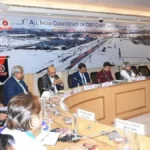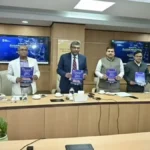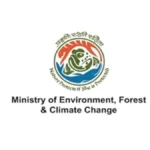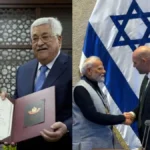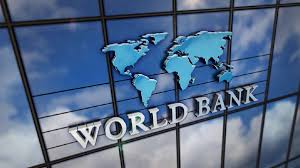World Bank Approves $188.28 Million Loan for Maharashtra’s Backward Districts
Introduction to the Loan Approval
The World Bank has approved a $188.28 million loan for Maharashtra, focusing on the state’s backward districts. This initiative aims to improve water management, agricultural productivity, and sustainable livelihoods for marginalized communities in drought-prone areas. The project is titled the “Maharashtra Rural Water and Agriculture Resilience Project.”
Focus Areas of the Project
The primary objectives include enhancing water resources, ensuring sustainable agriculture, and creating employment opportunities. The project is specifically designed to address the needs of small and marginal farmers.
The project will utilize the funds to:
- Build climate-resilient water infrastructure.
- Promote the adoption of modern agricultural practices.
- Strengthen community institutions for water management.
Targeted Regions and Beneficiaries
The loan targets the backward districts of Maharashtra, which face chronic issues such as drought, poverty, and low agricultural productivity. The beneficiaries will primarily include smallholder farmers, women, and marginalized groups. This project is a crucial step toward reducing inequality and ensuring inclusive growth in rural Maharashtra.
Partnership Between Maharashtra and the World Bank
This is not the first collaboration between the World Bank and the Government of Maharashtra. Previous partnerships have successfully implemented developmental projects, particularly in water resource management and rural development. This continuity reflects the strong alignment between the state’s needs and the World Bank’s focus on inclusive development.

Why This News is Important
Boost to Agricultural Productivity
The initiative aims to uplift agricultural productivity, crucial for Maharashtra’s economy, where agriculture accounts for a significant share of rural livelihoods. For students preparing for exams, this news highlights the intersection of rural development, international partnerships, and sustainable growth strategies.
A Model for Sustainable Development
The project underscores the importance of adopting sustainable and climate-resilient practices in addressing drought and water scarcity. It sets an example for other states in India, emphasizing how global partnerships can enhance regional development.
Aiding Marginalized Communities
Focusing on backward districts ensures that the most vulnerable communities receive the necessary support. This approach aligns with the goals of inclusive development, a critical topic for government exams.
Historical Context
Maharashtra’s Struggles with Drought
Maharashtra has historically faced challenges related to water scarcity and drought. Over 40% of the state frequently suffers from deficient rainfall, leading to reduced agricultural output and rural distress. Past government initiatives, such as the Jalyukt Shivar Abhiyan, have aimed at mitigating these issues, but long-term solutions require sustained efforts and funding.
World Bank’s Role in India’s Development
The World Bank has been a key partner in India’s development journey since its independence. From funding infrastructure projects to aiding rural development, the institution has played a significant role in improving the quality of life for millions. The current loan is part of this ongoing commitment.
Key Takeaways from World Bank Loan Approval
| S.No | Key Takeaway |
|---|---|
| 1 | World Bank approved a $188.28 million loan for Maharashtra’s backward districts. |
| 2 | The loan focuses on improving water management, agriculture, and rural livelihoods. |
| 3 | Targeted beneficiaries include small and marginal farmers and women in drought-prone regions. |
| 4 | The project emphasizes sustainable and climate-resilient agricultural practices. |
| 5 | This initiative is part of the World Bank’s broader partnership with India for inclusive development. |
Important FAQs for Students from this News
What is the purpose of the World Bank’s $188.28 million loan to Maharashtra?
The loan aims to improve water management, agricultural productivity, and sustainable livelihoods for marginalized communities in Maharashtra’s backward districts.
Which districts in Maharashtra will benefit from the World Bank loan?
The loan will target Maharashtra’s backward and drought-prone districts, which face challenges such as low agricultural productivity and water scarcity.
What are the key components of the Maharashtra Rural Water and Agriculture Resilience Project?
The key components include building climate-resilient water infrastructure, promoting modern agricultural practices, and strengthening community institutions for water management.
Who will benefit the most from this World Bank loan?
Smallholder farmers, women, and marginalized communities in drought-prone regions will benefit from the loan.
How does this project align with India’s development goals?
This project supports sustainable agricultural growth and aims to reduce regional disparities, contributing to India’s broader goals of inclusive and sustainable development.
Some Important Current Affairs Links



